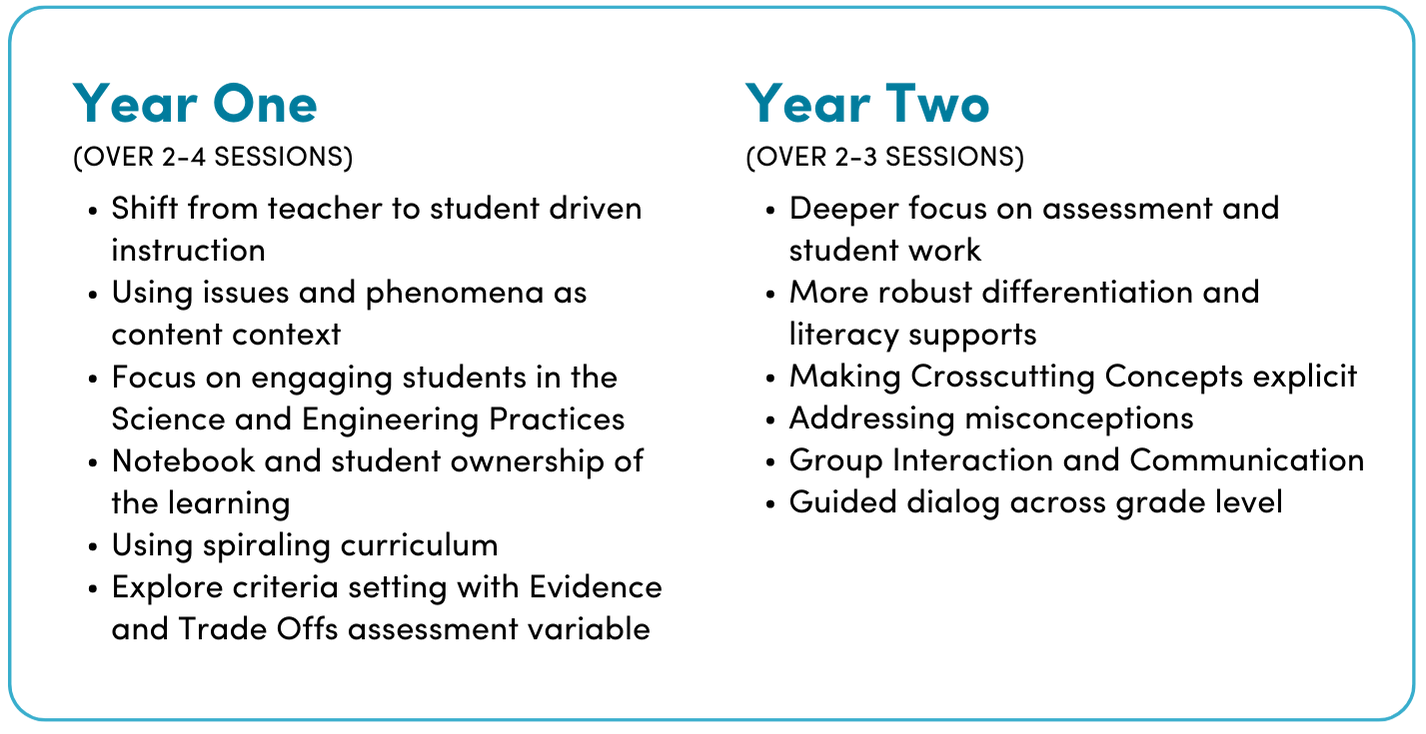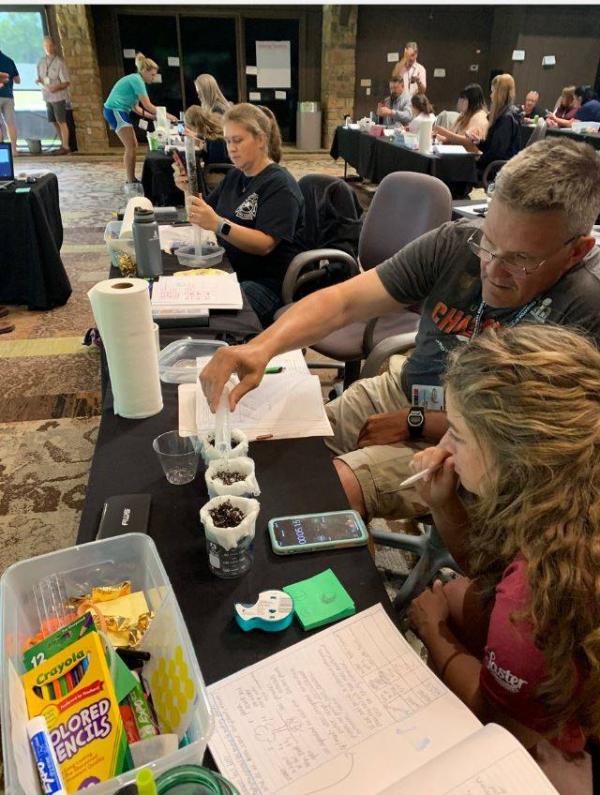Build Sustainability
Years one and two can be strategically customized with a district to best meet teachers where they are now and help guide them to where they want to be. Common areas of focus are listed in the table.
By year three we would transition to support for district leadership around the instructional materials, including participation in our annual Summer Academy and Train the Trainer events.

Common Next Level Topics
Summer Academy 2024
Designed for teachers and administrators who want to increase classroom effectiveness and for administrators seeking to take leadership and develop their local capacity for their Lab-Aids and SEPUP programs. This year Lab-Aids will host two distinct sessions:
Implementation Continuum
| Instructional Practice | Emerging | Full |
|---|---|---|
|
Laboratories, investigations, and other hands-on activities |
Most labs and investigations are central features of a coordinated sequence of activities of a unit. Students engage in the activities, but may need significant assistance to conduct them and may not be completely able to describe the purpose or value of the lab. |
Students complete most or all of the lab and other activities. They can usually describe the value and purpose of the lab and handle setup and cleanup of materials. Students may attempt and complete extensions and enrichment activities. |
|
Cooperative groups |
Students work collaboratively in groups but do not share the work equally. They might complete the tasks on time, but likely with some disruptive behavior. Class discus sions of results and analysis may be superficial. |
Students work in well functioning 4–2–1 groups. Peer-to-peer discussion is robust and developed. Groups work independently to complete tasks and discuss analysis appropriately. |
|
Literacy support |
Support for literacy development, where needed, incorporates literacy strategies provided as part of instruction and some of the student-skills sheets and visual aids from the Teacher Edition and Resources. Students’ oral and written work reflects an emerging understanding of the scientific language used in the unit. |
Literacy support, where needed, includes comprehensive use of many of the literacy tools in the Teacher Edition and Resources. Teachers expand or modify the tools to meet their specific students’ needs. Students’ oral and written work reflect an understanding of the language of science used in the unit. |
|
Assessment |
Teachers use test bank items and occasionally use assessment tasks and scoring guides. Students use the scoring guides occasionally to self-assess |
Teachers use the full assessment program routinely and completely for both formative and summative assessments. Students are familiar with the scoring guides. Students use the scoring guides consistently to self assess their work or the work of their classmates. Teachers may meet regularly to moderate (score and discuss) their students’ work. |

Supporting Agriscience Education
Lab-Aids has been a professional development partner of the National Association of Agricultural Educators (NAAE) since 2005. Our kits, curriculum, and approaches to professional development have been important elements of the National Agricultural Teacher Ambassador Academy (NATAA), a premier program of NAAE, since its inception.
We received the 2010 DuPont Educational Partner of the Year in part due to our work on the NATAA program. We can design short- and long-term professional development workshops to support the use of inquiry teaching and learning techniques and put together programs in support of the AFNR Pathways.